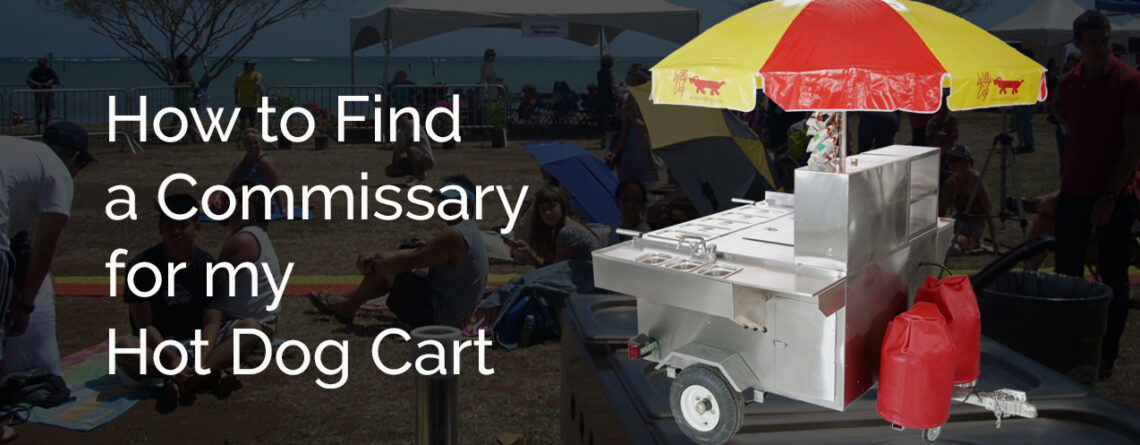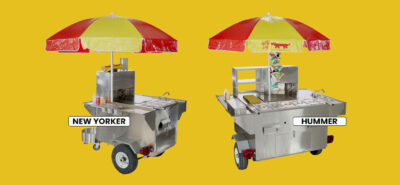How to Find a Commissary for my Hot Dog Cart
So You Want to Start a Hot Dog Cart Business? Here’s What You Need to Know About Commissaries
If you’re thinking about starting your own hot dog cart business, you’ve come to the right place! A commissary is where you can store your equipment and keep hot dogs in the fridge so that they’re ready to go when you are. You can also save time by getting your permits and other paperwork from the commissary instead of having to drive all over town looking for them. It will be easier to get up and running once you know what types of commissaries are available in your area, so here’s what you need to know about finding one.
What are commissaries and why do I need one?
A commissary is a facility for food carts and trucks that allows you to buy ingredients, store them and cook on-site. As such, it’s an important piece of your business plan. It might sound like finding one is impossible—and it’s not always easy—but keep reading for helpful tips on how to find and make your new business run as smoothly as possible.
Choosing the right commissary
The most important thing when choosing a commissary is location. When deciding where you want your cart to set up shop, ask yourself: Where do people in my area go out for lunch? The next question you should ask is whether there’s parking nearby. It’s not good business practice to have an empty cart on public property—even if it’s city-owned public property.
What kind of businesses could operate as a commissary?
Whether you’re starting a hot dog cart business or any other food-service operation, you need some place to store and prepare your goods. The ideal spot will offer secure storage, easy access, refrigeration, and plumbing. A commissary provides all of that in one location.
Typical businesses that can operate as commissaries include delis, restaurants, bakeries, and caterers who prepare food off-site. While every business needs its own dedicated space, operating out of a shared kitchen is also an option that many startups turn to when they don’t have enough capital on hand for their own facility.
Specialty food carts are also often located in shared spaces, such as farmers’ markets and street fairs. The best type of commissary for you will depend on your business type, production capacity, and financial situation. It can take time to find a good space that meets all of your needs, so be patient while searching. Once you’ve found it, work out an agreement with its owner or manager so you know exactly what your responsibilities are before you sign anything.
How much does it cost to use a commissary?
While you can start your business for as little as $100, it’s easy to spend far more than that. For example, if you’re planning on buying supplies (fryers, carts, tables, and so on) at retail prices, plan on dropping several thousand dollars during startup. Then again, depending on where you live, it might be possible to find used equipment for pennies on the dollar—or even for free. If you live in or near a military community or base that has many shuttered restaurants and commissaries within its gates or nearby (like Andrews Air Force Base outside Washington D.C.), try hitting up their resale shops—the National Restaurant Association estimates that 30% of all foodservice equipment is sold off every year!
Types of contracts with different commissaries
There are three types of contracts you can sign with your commissary. They range from being very flexible (free agent) to very restrictive (exclusive). Free Agent: This is a good option for entrepreneurs who want more freedom and control over their businesses. It’s best for people starting out who aren’t sure how much they will sell or where they will operate. This contract states that you can rent space at any commissary, so it gives you more options when you need one. It also means that when your sales fall, you don’t have to go elsewhere—you just choose another commissary and start selling there. Exclusive: If sales are important to your business, an exclusive contract might be right for you.
In Conclusion
Before you purchase a commissary, consider whether it’s really necessary for your business. Do some research into how many hot dog carts there are in your area, and what those carts do to sell. Make sure that you really want to run a hot dog cart business before purchasing one—and make sure that you have enough money set aside for capital expenses on top of all of your other expenses (including rent and food!). If you have all of these things covered, then congratulations!
We hope that helps you get an idea of how much it’ll cost to get your hot dog cart business up and running. As you can see, it’s easier than ever before to start a food service business. This makes sense when you consider how many full-service restaurants there are in most major cities—according to one 2015 report, around 27% of all restaurant growth happens within food trucks and other mobile businesses. That said, even though starting your own hot dog cart is simpler than ever before, there are still costs involved—and that goes double if you want quality equipment (like mobile fryers instead of works or grills). However, if done right, startups have an incredibly high survival rate.






LEAVE A COMMENT